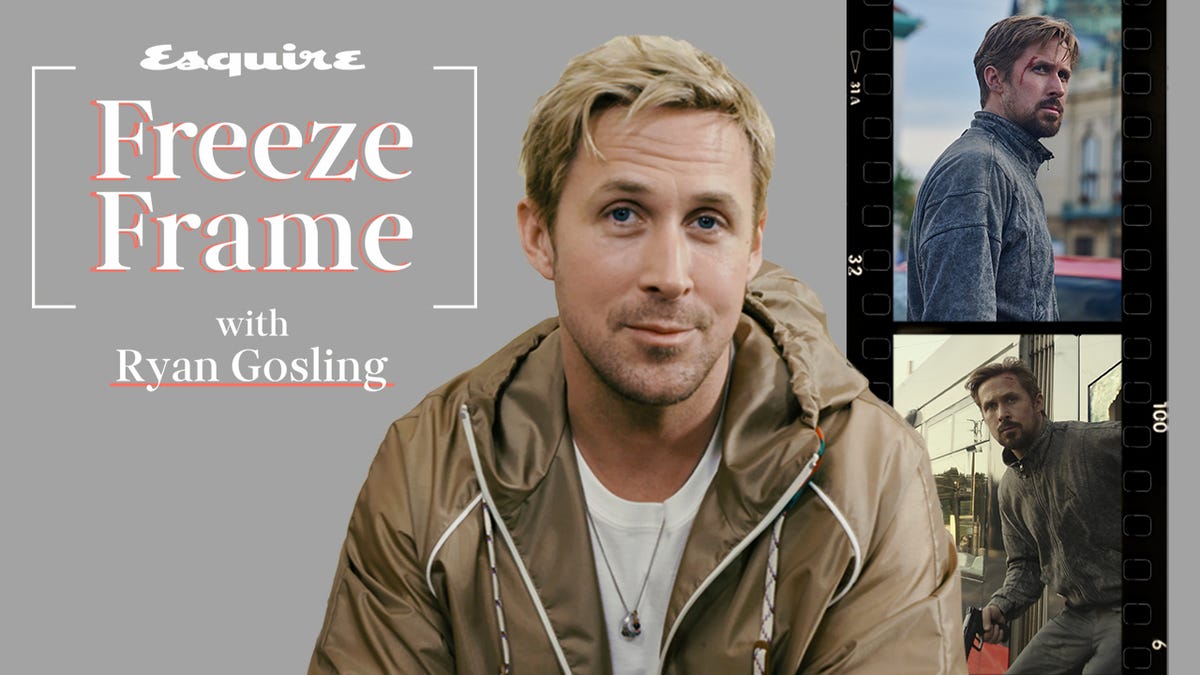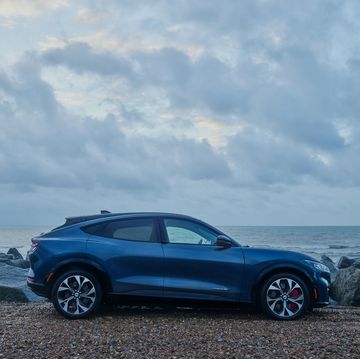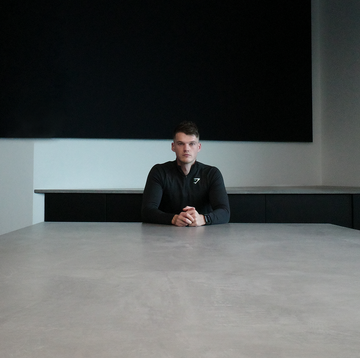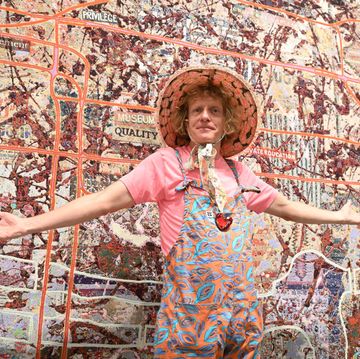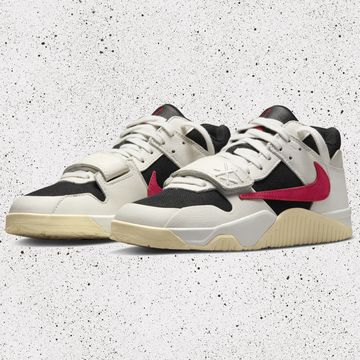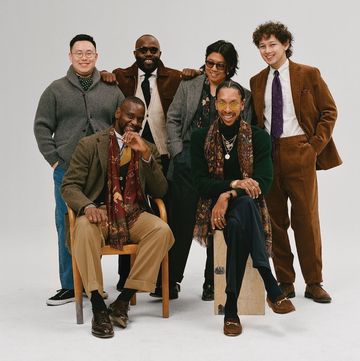Men’s fashion — it’s just like women’s fashion, but without the fun. That’s what the truism says, anyway: that women get all the variety and va-va-voom and men get shirts and jumpers. It makes you wonder why any female fashion student, let alone one who grew up devouring her “so chic” mum’s fashion magazines, “from the front to the back, literally every single word” and studied “all the different brands and designers”, would choose to do an MA in menswear. Turns out for all the reasons above.
“Women are easier to convince to wear something, for sure,” says Priya Ahluwalia, 27-year-old founder of the London-based menswear label Ahluwalia and the aforementioned student. “The idea is that menswear is really safe, and that men have been wearing the same clothes forever. But that just means that there’s more room for experimentation, and more boundaries can be pushed.”
In fact, Ahluwalia questions whether her clothes should be labelled menswear at all. “I don’t want it to be seen as if I’m saying only men can wear it,” she says. “The friends that I’m surrounded by are much more fluid with their gender, and their gender expression.”
Whatever you choose to call it, the clothes Ahluwalia makes are a joyful kaleidoscope of traditional tailoring (patchworked jackets, panelled shirting) and contemporary sportswear (pinstriped sweatshirts, slouchy sweatpants), constructed from vintage, dead-stock and recycled clothing. Each item is unique. There are tracksuit bottoms made of upcycled, jacquard-striped cotton hopsack, and hoodies and jackets sewn together from deconstructed Levi’s. It’s a poptastic mash-up that pays homage to the Nigerian, Indian and Jamaican heritage of Ahluwalia’s family, as well as the wider immigrant experience in the UK.
“My mum’s Indian, my dad’s Nigerian, my stepdad’s Jamaican and I was born in London,” she says. “So I’ve grown up with those different cultures.But it’s also nuanced because my mum was born in England — Newcastle — my dad was born in Nigeria, my stepdad was born in England. That filters cultures in different ways.”
A 2019 capsule collection for Matches Fashion was inspired by photographs of Ahluwalia’s grandfather, a Punjabi immigrant to the UK who favoured striped suits custom-made in India. Her psychedelic autumn/winter 2020 collection drew from 1965, the year her stepdad was born, for which she heavily researched politics and art across India, Nigeria and the UK, making it rather more informed than another designer“doing” the Swinging Sixties. Other references include vintage Nigerian album covers, the 1960s–’70s textile artist Barbara Brown and Indian dyeing, beading and embroidery techniques.
Then there are Ahluwalia’s own childhood experiences, watching her cousins, aunties and uncles dressing up for UK garage nights in south London — “they loved raving, I used to sit in their rooms watching them get ready” — and MTV Base and Channel U.
“I feel like my version of the 1990s was so different to what popular culture was showing,” she says. “Not Britpop, not Kurt Cobain. Myfirst album was 2Pac, All Eyez on Me, that my mum bought me when I was four. I was obsessed by music videos by Aaliyah and Missy Elliott. Constantly surrounded by Indian, Nigerian and Jamaican people and music.”
Ahluwalia graduated from the University of Westminster in 2018, when her graduate show was bought by the influential retailers Opening Ceremony and LN-CC. In 2019, she showed her first collection in Paris as part of a collaboration between the British Fashion Council and Adidas and later won the H&M Design Award for new talent. Last year, she was jointly awarded the LVMH Prize honouring emerging designers and was named on Forbes magazine’s 30 Under 30 list in its art and culture category. She also made a film for Gucci’s virtual fashion film festival, GucciFest.
Almost any label you care to name has got behind sustainability in the last couple of years. But when you’re making new clothes from old clothes, as Ahluwalia does, sustainability isn’t a consideration, it’s your whole MO.
“Small businesses like myself have had sustainability as a value since their inception,” she says, of the operation she runs from a studio in Wandsworth, south London, with a core team of three. “The emphasis should be on the high street and internet fast fashion businesses, they’ve got the units to really make a difference. Realistically, what impact am I having compared to [women’s fast fashion retailer] Missguided? They’re the ones that really need to answer to it. There’s a lot of greenwashing going on.”
On travels to Nigeria and India, Ahluwalia was fascinated to see western clothes worn in new contexts. In Lagos, she noticed “hawkers” — street sellers flogging goods to motorists stuck in traffic jams — wearing old promo T-shirts (“London 2012” Olympics was one) and would wind down her taxi windows to ask them where they had got them.
“I’m really nosy,” she says. “I’m always looking to learn new stuff. If I hear something and I don’t know what it is, I’m straight on Google. I’ve always been really into reading books. It definitely helps in this job. Over lockdown, I did a couple of short courses. One on Greek mythology... it was a bit convoluted, to be honest.”Loads of graduates strive for a career in fashion, few make it by setting up their own businesses. Indeed, creativity and finance — mood boards and spreadsheets — don’t always make happy bedfellows. “I had it in my headI’d have to be running a business as well as a brand,” says Ahluwalia. “I actually enjoy the business side of it. My mum has been instrumental in that, she’s a finance director. I need to take that into account because I’d love this to be something Ido forever.”
Like every good parent, mum wasn’t entirely convinced by her daughter’s choice of career path, at least at first. “She was really worried. There wasn’t anyone who looked like me in fashion. You didn’t see any designers who were female, mixed race or black.”In fact, Ahluwalia has met the moment, and then some: if there wasn’t already a label making gender-fluid, globally intertextual formal/sportswear on an undeniably sustainable tip, then in 2021 someone would probably have had to invent one. On the zeitgeist Ahluwalia may be, but don’t expect her to be a spokesperson for it.
“People can be really rude,” she says. “A magazine contacted me to ask what I thought of Black Lives Matter, while I was on holiday. It’s obviously a personal subject to me. But I needed a break. I’d been looking at protests for the last three months. I was mentally and emotionally drained. Then this guy has found my email and said, ‘How did I think the fashion industry was going to be united if I refused to talk to him? And what was I doing to unite the industry?’ First, that’s not my job. Second, I don’t work for the UN, so I don’t really know what you’re taking about.”
Race relations, sustainability, the future of the fashion industry... “I know,” she says. “God. It’s definitely a lot.” Better just to say that Ahluwalia’s colourful creations are just about the most exciting thing in clothes right now — men’s, women’s, whatever.
“I actually like the way men in London dress,” Ahluwalia says. “They’ve got a really diverse wardrobe and they dress in a really versatile way.”Still, there is always room for improvement. “Just make sure things fit. I don’t want to sound like a sex pest, but there’s nothing worse than seeing jeans that don’t look nice on a bum,” she says. “I don’t think guys realise how much people look at their bums.
Like this article? Sign up to our newsletter to get more delivered straight to your inbox.
Need some positivity right now? Subscribe to Esquire now for a hit of style, fitness, culture and advice from the experts




